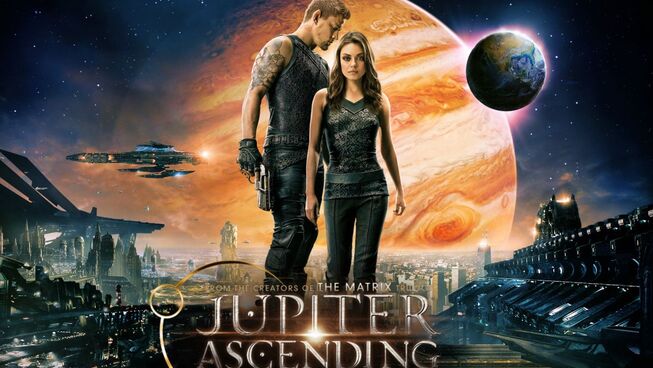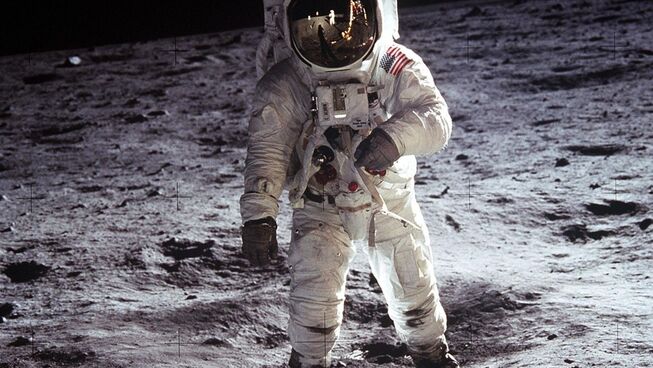
1 out of 5 stars
The Wachowski siblings wrote and directed The Matrix trilogy. Since that phenomenal breakthrough, they have struggled to find the same cutting-edge vision (Speed Racer and Cloud Atlas didn’t set the world on fire).
Jupiter Ascending is their latest crack at big-screen success, but it fails to pay off. In desperate need of the “less is more” approach, they have tried to do too much in one movie. The Wachowskis seem to be lost in their own world, as well as being unsure of what message they are trying convey. Have they tried to create another groundbreaking sci-fi epic? Or is Jupiter Ascending more of a philosophical discussion on reincarnation and the potential effects it has on the universe? Or, is it a possible blow to our consciences, about the atrocities of materialism and misuse of the environment? Or, is it a Saturday matinee-style adventure? Whatever they attempted to communicate, the message gets lost in the delivery.
Based on the jumbled results of Jupiter Ascending, the Wachowskis may well have lost sight of one essential component of film-making — a good story should drive the film. The story they’ve created has whispers of Greek mythology, through a sci-fi re-telling of the tale of self-absorbed creators who manipulate the universe for their own selfish purposes. But even with these whispers of stories of old, the story does not get off the ground.
There is a lot going on in Jupiter Ascending, which revolves around Jupiter Jones (Mila Kunis), a young woman who hates her life. Even though star signs and words of prophecy at her birth indicated she would lead a charmed life, adult Jupiter is an illegal alien in Chicago, cleaning toilets for the rich. Caine (Channing Tatum) enters her life, a genetically engineered ex-military hunter. He introduces her to the realities of the universe, and her true status — as a galactic princess. Whoa. Jupiter is part of a royal heritage that rules the universe. She must quickly determine where her loyalties reside — with her earthly family, or in her broader responsibilities in the universe.
Lead actors Kunis, Eddie Redmayne (The Theory of Everything) and Sean Bean (Game of Thrones) have been left with weak dialogue that often causes inappropriate laughter. The weak script and convoluted story are more to blame for the acting performances themselves being quite poor.
The last hope for the film, then, lies in the special effects. They are good, but not the kind of breathtaking we have come to expect from “the makers of The Matrix”. As far as the nature of the content on-screen, it’s all relatively benign. Besides one bath scene and a certain level of sci-fi violence, Jupiter Ascending is surprisingly tame for a Wachowski production. Like most of their movies, there is a heavy reliance on Eastern mysticism and reincarnation as a story vehicle. This component can lead to considerations of the afterlife, and does show that this method of “rebirth” is a vicious and hopeless view of life after death. The potential for good discussion on topics such as materialism, the environment and the after-life do present themselves.
Leaving the cinema…
Thanks largely to the muddled script, most of the discussion after the film will probably be about the pitiful direction that the Wachowskis’ career seems to be headed in. Because, while The Matrix remains an exceptional experience, Jupiter Ascending was a heart-breaking one.
What are the bigger questions to consider from this film?
- What happens after death? (John 11:25, 1 Corinthians 15:51-57)
- What is our purpose in the universe? (Proverbs 16:9, Romans 8:28)
- Is God selfish? (John 14:31, 1 John 4:10)



